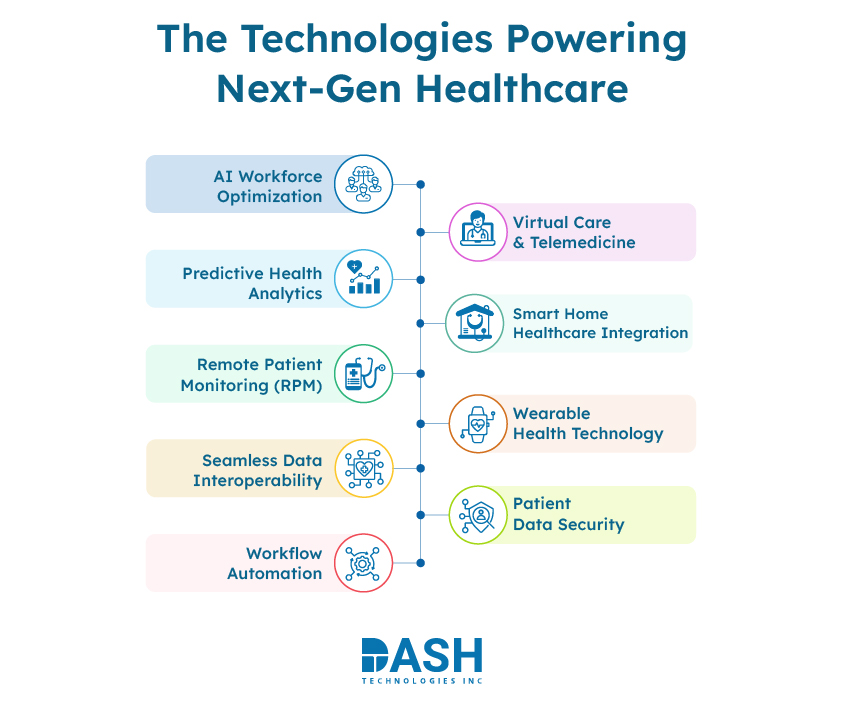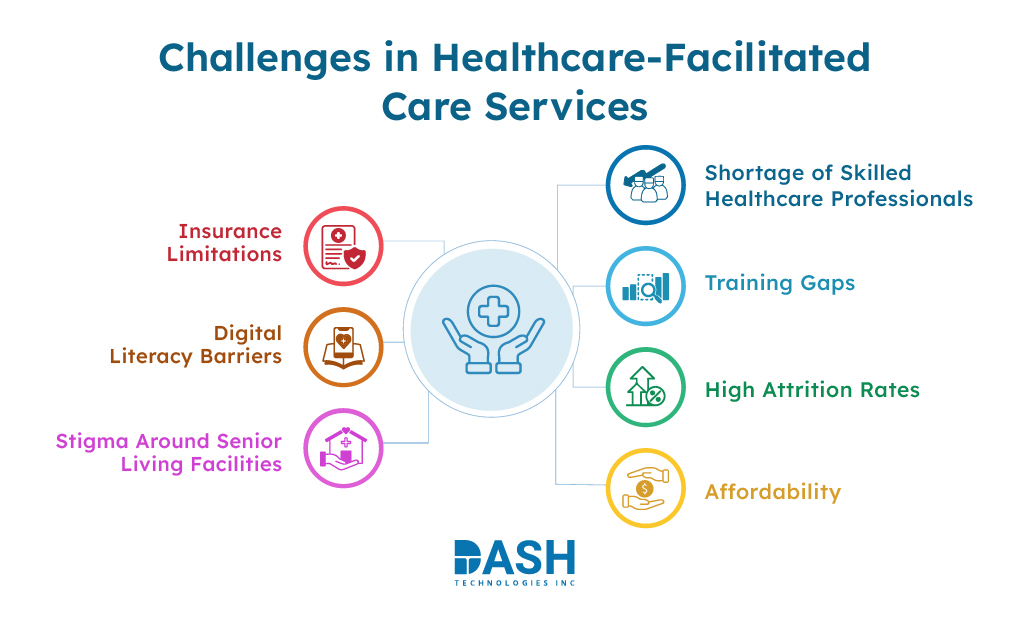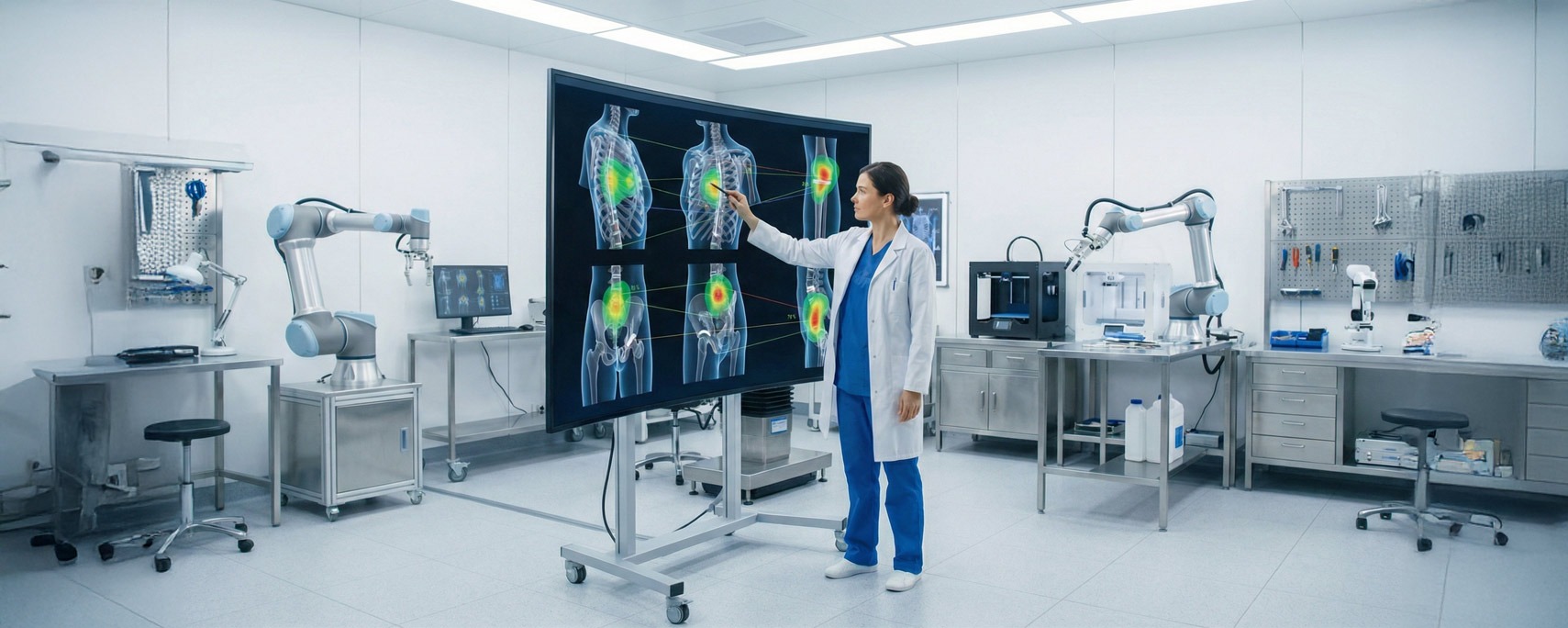Transforming the Care Services Market with Healthcare Innovation
The care services market is changing very fast because of increasing healthcare innovation and technological advancement. As populations age and chronic diseases become more prevalent, care services are evolving from basic support systems to comprehensive healthcare delivery ecosystems.
From healthcare delivered at home to technologically enabled senior care, the future of care services has a deep link with healthcare evolution. It’s not just about new technologies. It’s about rethinking the way we care for others. We have to make quality, accessibility, and compassion core to healthcare delivery.
Key Drivers of Healthcare’s Shift in Care Services
There are powerful forces reshaping the future of care services through a healthcare-first lens:
- Aging Population: The U.S. possesses an aging population that is increasingly growing. Such growth creates higher demand for senior living centers and home care.
- Technological Advances: Healthcare innovation through telehealth, remote monitoring, and AI-driven care solutions enhance access and delivery of services.
- Transition towards In-Home Care: here’s a growing preference for receiving care at home, driven by cost-effectiveness and comfort, prompting hospitals to advocate for remote care solutions.
- Supply Shortages: Even with growing demand, the industry is still unable to deliver to the growing needs of the ageing population. There may be a deficit of more than 560,000 senior housing spaces by 2030.
Optimizing Emergency Call Systems for 60% Faster Caregiver Response
Explore how we helped optimize emergency call systems for caregivers, achieving a 60% faster response time — a real-world example of how technology can truly transform healthcare at home.
Read the Case Study!The Evolving Healthcare Market in Care Services
The care services sector, rooted more in healthcare provision, is growing in a major way. The total market size for care services such as home care, hospice care providers, assisted living facilities, and skilled nursing facilities was valued at USD 478.1 billion in 2022.
By 2030, the market is projected to reach USD 748.5 billion, growing steadily at a CAGR of 5.76%.
This expansion is indicative of historic shifts in the models of caregiving toward integrated health solutions powered by technology and programmed to respond to the dynamic requirements of an increasingly older population that is health aware. The next growth phase of the market will be led by home care, chronic care management, and senior living technology, which will drive the evolution of senior living communities and further integrate healthcare into these environments.
Healthcare Technology Advancements Powering the Shift

Technology is key to merging healthcare with care services. New advancements improve patient experiences and boost clinical results and efficiency. This is a clear reflection of healthcare transformation in action, with tools like AI, predictive analytics, and remote monitoring reshaping the healthcare landscape.
- AI Workforce Optimization: AI platforms optimize staffing, automate training, and fill labor gaps. This improves the quality and reliability of patient care.
- Predictive Health Analytics: Personalized treatment plans and active risk management are now standard. Advanced data modeling and predictive analytics power this shift.
- Remote Patient Monitoring (RPM): IoT solutions monitor chronic illnesses in real-time, enhancing chronic disease management by keeping patients out of the hospital and improving the condition of home-treated patients.
- Seamless Data Interoperability: Seamless data transmission between healthcare platforms improves care coordination. It enhances patient management.
- Workflow Automation: Through automation of billing, compliance, and admin responsibilities, healthcare providers can devote more time to attending to patients.
- Virtual Care & Telemedicine: Virtual doctor visits and mental health services are now common. They reach homebound patients and underserved groups.
- Smart Home Healthcare Integration: Voice systems and safety features keep seniors and patients safe. This allows them to maintain their independence.
- Wearable Healthcare Technology: Health tracking devices track vital signs and medication compliance without interruption.
- Patient Data Security: Protecting sensitive health information is vital. Cybersecurity measures and HIPAA platforms ensure patient privacy.
These innovations offer more than convenience. They also make healthcare at home healthier, safer, and more personalized.
Navigating the Hurdles in Healthcare-Facilitated Care Services

Despite promising development, there are several challenges that are confronting the healthcare-facilitated care services industry, such as:
- Shortage of Skilled Healthcare Professionals: There is a huge disparity between demand for trained nurses, therapists, and caregivers and availability.
- Training Gaps: Many home health care workers have not trained as healthcare professionals and are not certified, a situation that leads to compromise in quality care and safety for patients.
- High Attrition Rates: Poor remuneration, emotionally strenuous and limited career advancement opportunities have led to high turnover rates among health care personnel.
- Affordability: While economic growth is improving access, professional home healthcare remains unaffordable for many middle- and lower-income families.
- Insurance Limitations: Most parts of the world do not cover home care or, in fact, long-term elder care. Thus, expenses have to be incurred by patients out of their own pockets.
- Digital Literacy Barriers: Elders and caregivers often face difficulties in successfully utilizing telehealth platforms, remote patient monitoring equipment, and healthcare mobile applications. This issue is particularly challenging for chronic disease management, as these patients require continuous monitoring and communication to stay on track with their care plans.
- Stigma Around Senior Living Facilities: Incorrect attitudes regarding nursing facilities and assisted living communities continue to slow larger-scale adoption of professional care services.
Overcoming these challenges will take more than just policy changes — healthcare innovation can help address many of these issues, making healthcare at home more accessible and effective for everyone.
Dash Technologies: Enabling the Future of Healthcare-First Care Services
At Dash Technologies, we recognize the evolving intersection of healthcare and care services. Through healthcare innovation, we are committed to helping care providers navigate these transformations, contributing to the overall healthcare transformation with advanced, healthcare-focused technology solutions.
Our offerings include:
- AI-Enabled Healthcare Optimization for staffing, patient care planning, and operational efficiency.
- Seamless Integration with healthcare ecosystems, ensuring interoperability and streamlined care delivery.
- User-Centric Platforms designed for patients, caregivers, and clinicians — easy to use, secure, and compliant.
- HIPAA-Compliant Data Security ensuring the highest standards of patient information protection.
- Predictive Analytics for proactive healthcare management and improved patient outcomes.
Our AI-driven digital services are built to drive bottom-line growth, enable operational excellence, and solve real-world challenges in healthcare delivery. Contact our experts today!
About Dash

Dash Technologies Inc.
We’re technology experts with a passion for bringing concepts to life. By leveraging a unique, consultative process and an agile development approach, we translate business challenges into technology solutions Get in touch.









